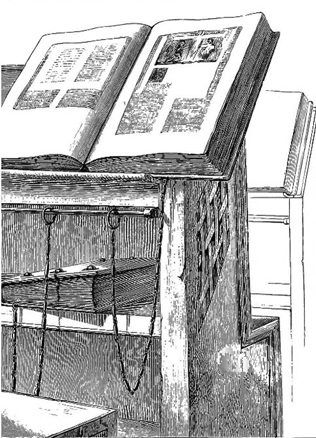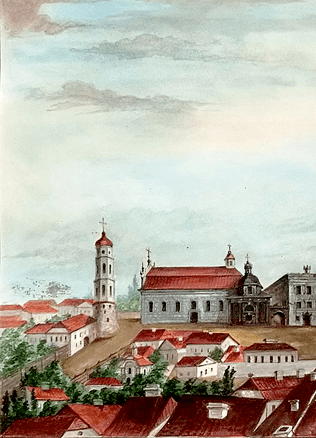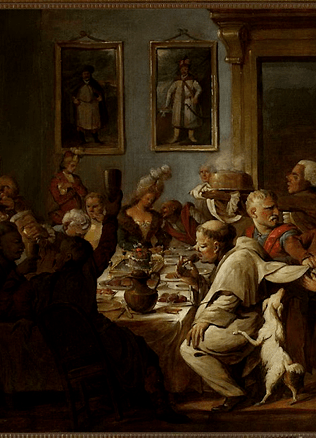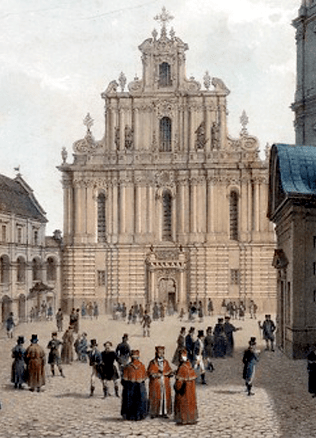Peasant Life According to Interrogation Papers in Vilnius Castle Prison
The hand-written heritage of the Grand Duchy of Lithuania features quite a few documents providing information on the life of the peasantry, the largest social class of the time. All the documents, however, have been produced by the representatives of other estates, therefore none of them expresses the opinions of peasants themselves directly. The surviving sources include court oaths by peasants, even in Lithuanian, but they are full of legal clichés and can hardly serve as reliable documents in reconstructing the mentality of the peasantry. On the other hand, the surviving court interrogation papers represent the complex of historical sources capable of shedding more light into everyday life of peasants. Peasants who happened to be brought to the prison inside the Vilnius Castle, were questioned by court officials. It is likely that some of the peasants were tortured but their monologues, and sometimes dialogues, reflected their complicated lives.
Rebellious Subjects
What were the reasons for peasants to be locked in that grim institution? Some of them were accused of rioting against their masters. However, getting rid of the delinquent subjects through imprisonment would sometimes prove to be a costly affair. The 1717 case provides information on a captain from the Vilnius Castle who faced charges related to the actions by Daniel Gottfried Jonston de Krakeborn, the adjutant to the king. The adjutant locked his rebellious subject, one Szymuk Gudelis, in the prison where he shortly died. Captain M. Kozlowski, together with the garrison standard-bearer, witnessed in court that the prisoner’s weekly food allowance was 14 kopeks, hence he could not starve to death but rather died of some natural reason. The captain wanted the court to question other prisoners on the matter but the court rejected the request.
Occasionally the officials in the Vilnius Castle Prison needed to check the owners of this or that peasant. The entire extended family of Rimkai underwent questioning in 1739. The oldest member of the family, Jan Rimka, was 90 while the others were considerably younger, from 20 to 60 years old. Court officials wanted to establish the owner of these peasants. Jan Rimka testified that his extended family had been living in the district of Starodub for many years, back when the land was part of the GDL and later when it was run by the family of Sapieha; at the time of the interrogation it belonged to the Žabai aristocrat family.
Not all peasants were obedient serfs.
Some confessed that they had fled their masters and lived on their own for a long time. Stanisław Rinkewicz, a peasant born in Glubokoje in the present-day Belarus, told in 1739 that he fled to Lithuania where he served with other peasants and Jesuits before moving to his father-in-law’s house. He later lived with his wife in Kairėnai and they had four daughters. He successfully went through many serious troubles in his life but not everyone was that lucky. Griszka Lukaszewicz testified in 1753 that he had been a peasant of the bishop of Vilnius. It was back in his childhood that he left Leśnica in the district of Minsk together with his mother and subsequently worked as a servant for a resident of Minsk whose family name was Szyszka. Later did similar job at the Wolodkowiczy family in the powiat of Minsk and in the Trinitary Monastery in Vilnius. He also worked as a wine maker for the Poczobut family. Encouraged by one Ignacy, a servant of the elder of the town of Varėna, he was involved in grain thieveries lasting a considerable period of time. The court sentenced him to death by hanging after declaring him an old thief. It is impossible to know whether Griszka Lukaszewicz really was a hardened criminal. His interrogation included torture therefore his testimony could be far from the truth.
Severe punishment for brutal crimes
Sometimes noblemen would deliver the peasants they owned to court in order to interrogate and punish them for criminal offenses.
A peasant Stanisław Bartoszka was brought to court by his master named Witiekowna. Stanisław Bartoszka was accused of murdering in 1753 Krzystina Gotowicka and a ten-year-old boy Kazimierz Jasinski who accompanied her as she was begging for alms in the villages of Gižiai and Miškiniai in the vicinity of the town of Giedraičiai. The murderer acknowledged learning about the begging woman with the boy from a Jew named Jankel after which he started following them and eventually killed the two by beating them with an oak club. Hit at forehead, the woman died instantly. The murderer then took her money and clothes but did not take anything from the killed boy. The court was quick in announcing the verdict of quartering. His body parts were put on stakes and displayed at the main roads.
Not everyone would end up that gruesomely though. Michał Szukiewicz, a peasant from the district of Trakai, found himself in prison in 1741 after being brought there by Ksawery Jacunsky who worked as a guard. Michał’s parents, born in the powiat of Trakai, worked as servants for the parson of the town of Punia but died during the outburst of plague. Michał himself worked as a servant for peasants Michał Gerszul (or Kerszul) and Stefan Agurky and the voivode of Minsk named Žaba before moving to the village of Mergutrakis run by Ksavery Jacunsky. He married Marijona Ozkinowa there. Helped by several bonnets, he soon fled the village and lived in the woods near the town of Punia. Michał was captured by other servants of Ksavery Jacunsky on his way to rob the home of Wawrzyniec Iwoszka, a peasant of Ksavery Jacunsky. Michał rejected organising runaways of other peasants and mass burglaries; he also denied stealing cattle and grain from Ksavery Jacunsky’s granaries. He testified under oath and several people offered bail for him. Later Ksavery Jacunsky took Michał with him.
Peasants testify against the nobility
Peasants would sometimes be questioned as witnesses. Aleksey Sapilon was one of them when he gave evidence in 1742 in regard with the gruesome crime by a nobleman named Stanisław Malinowski. The latter was accused of shooting dead Icikas Gerszonowicz, a Jew, and throwing him into the Nemunas River. The nobleman denied his involvement in the crime but Aleksey Sapilon testified against Stanisław who eventually received a death sentence for killing the Jew.
While providing evidence in court hearings related to conflicts between noblemen, peasants would sometimes traverse versions put forward by their owners.
One example is the 1770 court case between Franciska Jelenska, a noblewoman from the powiat of Mazyr, and Antoni Towianski, a head of the nobility in the powiat of Vilnius accused of assail. Jelenska herself delivered Jan Towianski, a relative of Antoni, to court. According to Jan, Antani sent him to harvest rye but he had no idea in whose land he worked [sic!]. Although Jan admitted having a gun, he utterly rejected taking part in an armed extortion because he surrendered his gun to one of Jelenska’s servants and “there was no fight there whatsoever.” Despite that, Jerzy Mazeika, a peasant arrested together with Jonas, confessed he had known that the land in the village of Kazliškės belonged to Jelenska.
Peasants strived for freedom and a better life but only a few would end up unpunished after fleeing their owners. Some of the runaways would find themselves in grim situations that would take them to the scaffold.
Domininkas Burba



